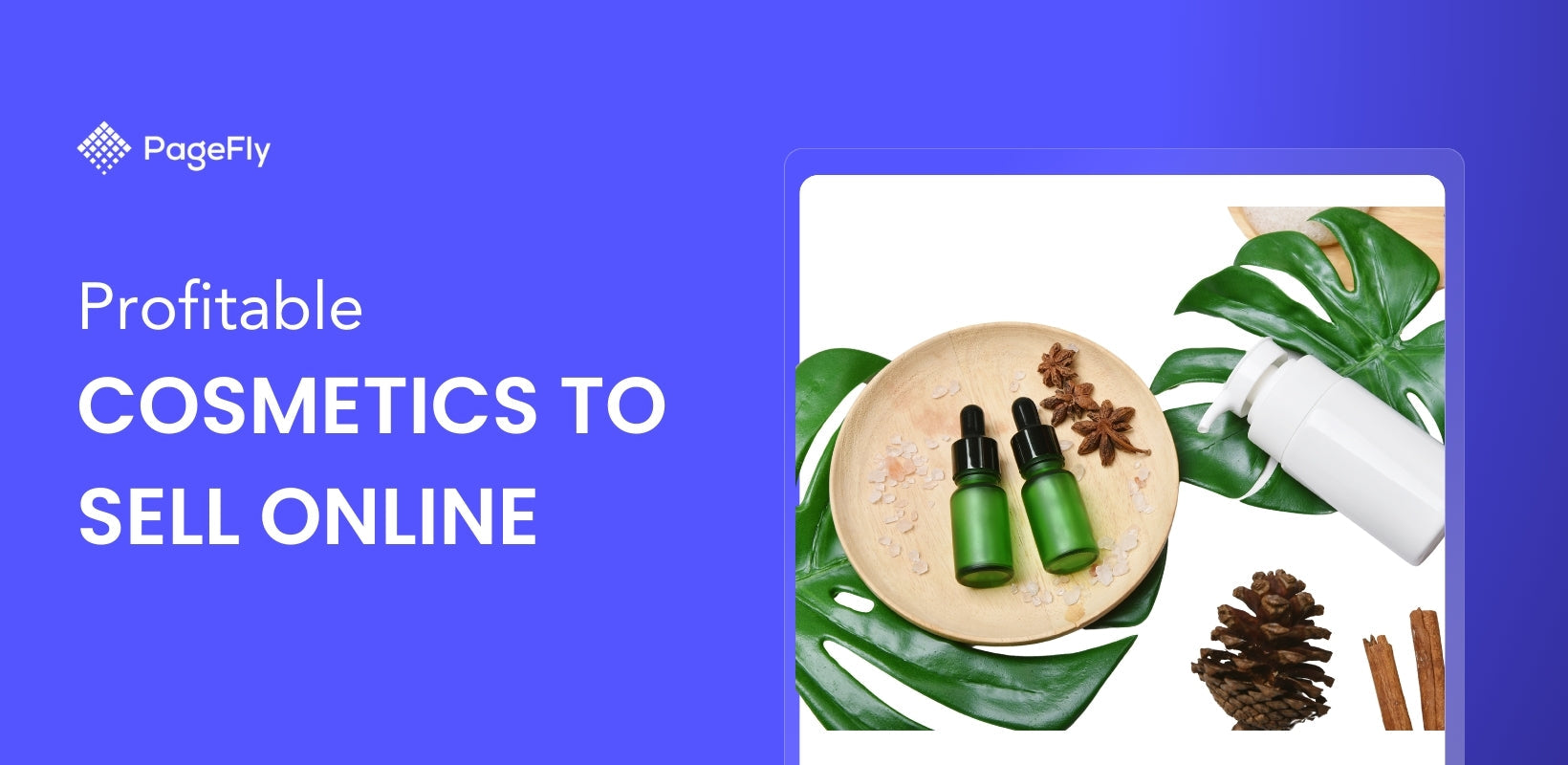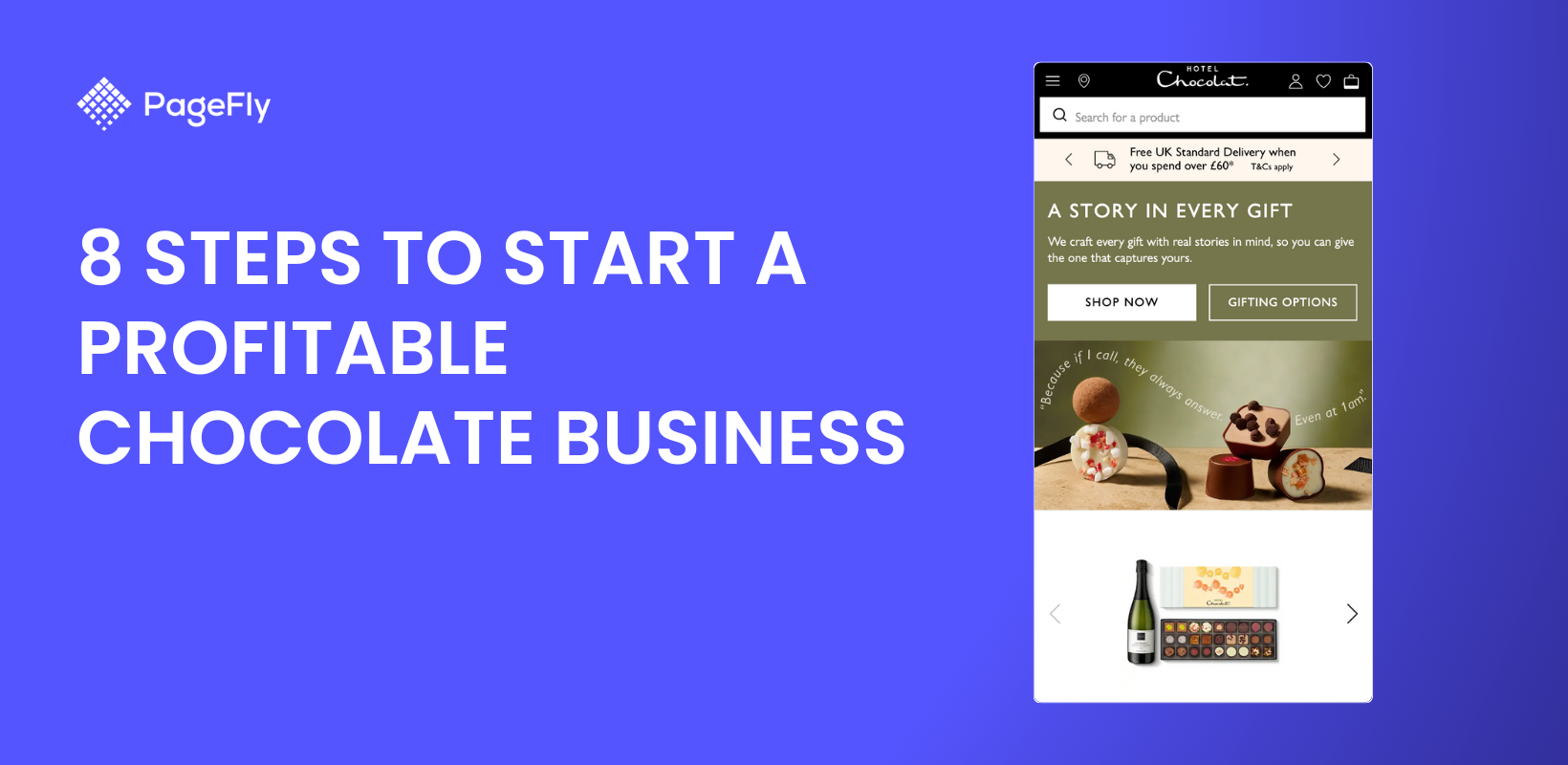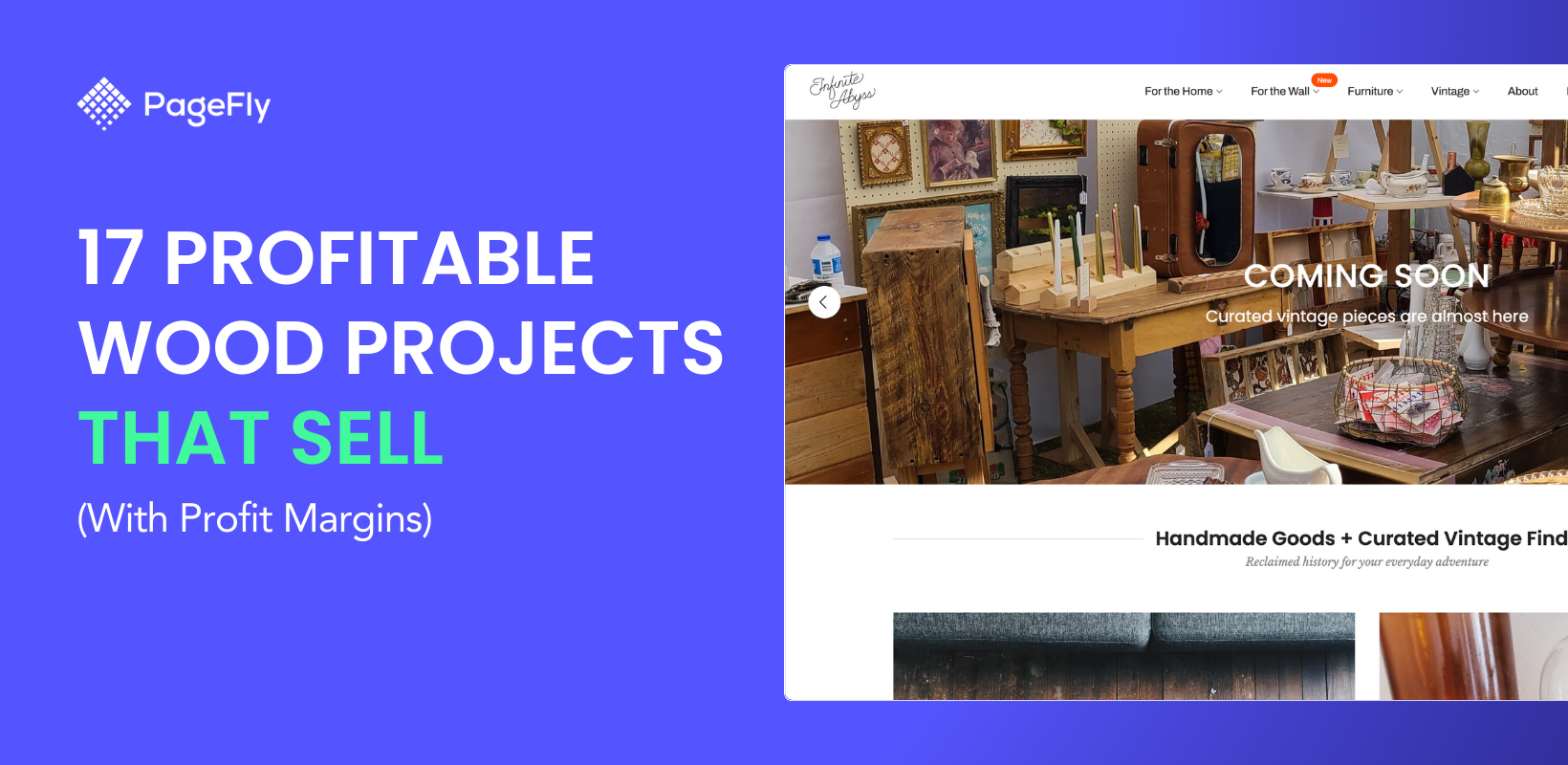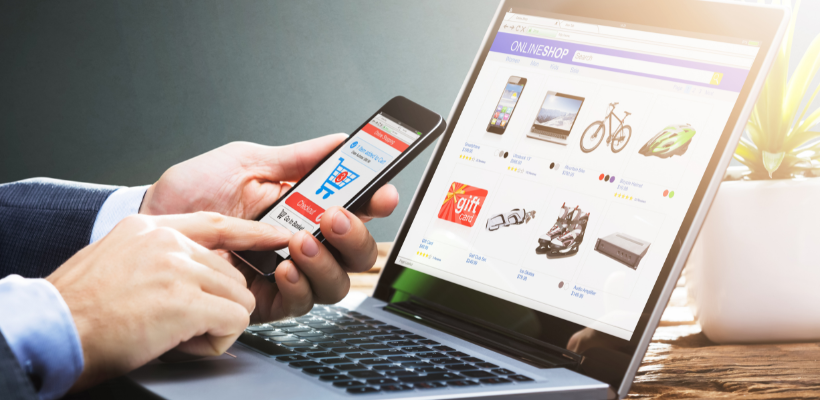How much money do you need to start a business? Between a few hundred and tens of thousands of dollars may be required.
The total depends on a number of variables. Others include your industry, the number of employees you'll need, and your choice of business structure (brick-and-mortar or online store).
Even though starting a business can be exciting, it also costs money. Be realistic when estimating startup costs for businesses. Office space, legal fees, payroll, business credit cards, and other administrative costs can add up quickly.
If you're considering starting a new business, you might be unsure of how to select a loan provider.
In this article, we'll show you how to calculate startup costs and show you how much it costs to start a business in the most popular sectors.
Start Small
You probably have high standards for your small business. Blind optimism, however, might lead you to make hasty investments of a large sum of money. It's a good idea to be flexible at first and get ready for any potential problems.
Cynthia McCahon, founder and CEO of business plan software company Enloop, said small business owners should start with a bit of healthy skepticism.
“A prospective business owner should start planning a small business by simply understanding the potential of the business idea,” she said. “What this means is not assuming your idea will be successful.”
The best strategy, according to McCahon, is to test your concept in a small, low-cost manner that provides you with a good indication of whether customers need your product and how much they are willing to pay for it. If the test appears to be a success, you can begin organizing your company based on what you discovered.
Business Startup Expenses

As a new business owner, there are many things to take into account. A general list of some common startup costs is provided below.
Legal Fees
To set up your business, you might need to hire a tax expert, a lawyer, and possibly someone to help you apply for permits or licenses.
Typically, law firms bill clients on an hourly basis. Legal fees can add up quickly, especially if your company is complicated or you're involved in a court case.
Additionally, the requirements for companies wishing to operate within a state's borders vary by state. In general, businesses must apply for a business license, a tax ID number, and any necessary permits.
Rental
The physical location of your store is crucial. You need to make sure the space meets your needs in addition to thinking carefully about where you open your small business.
Depending on your industry, working from home may be so common that you could forgo renting an office space to save money. This would eliminate a significant long-term business expense. This calls for careful thought because it will also make running the business a very different experience.
Inventory and Raw Materials
Are you going to sell products? If so, you will need to stock your shelves with inventory.
If you own a restaurant or another type of hospitality business, you will also need to buy inventory to stock the bar and make your menu items.
The variable costs of buying these things will vary depending on the size of your company. Your cost per item will be particularly high for luxury stores that sell high-end clothing or specialty shops that sell expensive equipment. You can easily spend $100,000 just outfitting your store.
In any case, choosing how much inventory to buy will require careful mathematical calculations. Some things to think about are:
- Demand: To ascertain your anticipated sales volume, analyze your market.
- Storage space: While you want to fill your shelves with merchandise so that your store doesn't appear empty, doing so at the expense of having too much inventory. Similarly, keeping perishable goods in storage might raise your shrinkage costs.
- Avoid investing all of your liquid capital in inventory. Ensure that you have extra money set aside for future unforeseen business expenses.
- Profit margin: You can get away with selling fewer items if your margins are high. If your profit margins are low, you will need to sell a lot of products to remain profitable.
Read more: How To Price A Product Using Profit Margin Calculator Tool
Equipment and Supplies
The most frequent outlays for a home-based business are for computers, software, printers, office supplies, and phone/internet service.
Typically, a new business's start-up expenses can range from a few hundred dollars to $100,000 or more. Whether you're starting from scratch or purchasing an existing company will have an impact on the amount you'll need to invest.
Many people forget to account for the tools that will likely be necessary for a business to run smoothly when estimating the cost of starting one. These goods may be reasonably priced for small shops. This equipment might account for a sizable portion of your restaurant's business costs.
Retail companies may require:
- Signages and displays
- Shelves
- Shopping bags and packaging
- Point of sale for retail
- Uniforms
Hospitality businesses may need:
- Tables and chairs
- Kitchen appliances
- Dinnerware and napkins
- Point of sale for hospitality
- Uniforms
- Decoration and lighting
Marketing
It's critical to devote a reasonable portion of your startup budget to marketing costs. After all, if nobody is aware of your small businesses, you won't get very far.
However, it is advised to keep these advertising and marketing expenses at or below 10% of your overall budget.
Here are some common marketing expenses:
- Influencer
Let’s say for Fashion Nova brand, what really stands out is how well they used user-generated content and a brilliant social media strategy. For a chance to be featured on their homepage, Fashion Nova asks their followers to upload photos on Instagram wearing Fashion Nova's clothing. They have had great success with this feature.
Their extensive success is also due to their use of influencers, which includes partnerships with well-known influencers like Cardi B.
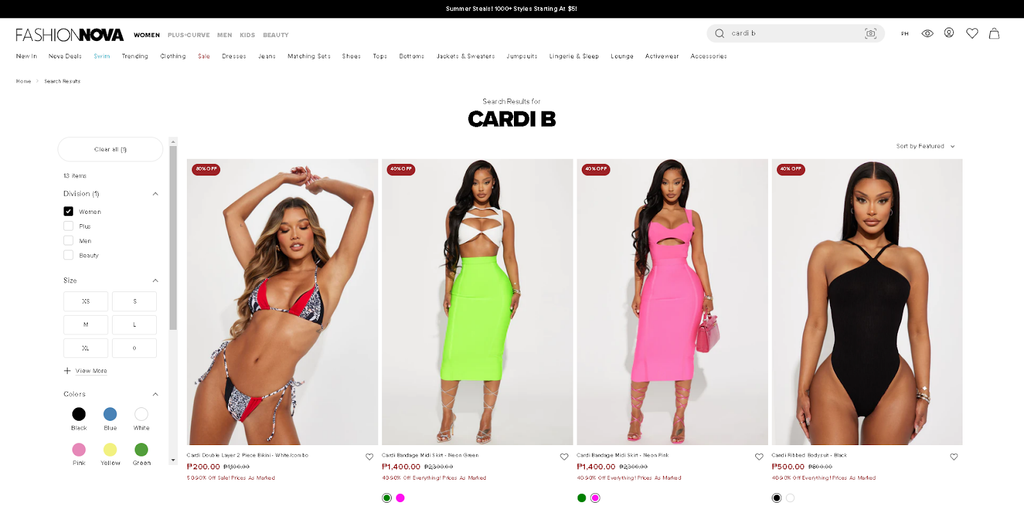
- Social media
GoPro is undoubtedly neither the first nor the last business to be successful with a user-generated content-driven marketing approach, but that doesn't make it any less valuable or deserving of being on our list! Since GoPro is a company committed to producing quick, on-the-go content, the product lends itself well to this marketing strategy.
As a result, GoPro can take advantage of a "spectacular" Instagram feed without having to spend a lot of money hiring photographers. Additionally, every user-generated image that appears in the feed inspires other people to take pictures and post about their experiences.
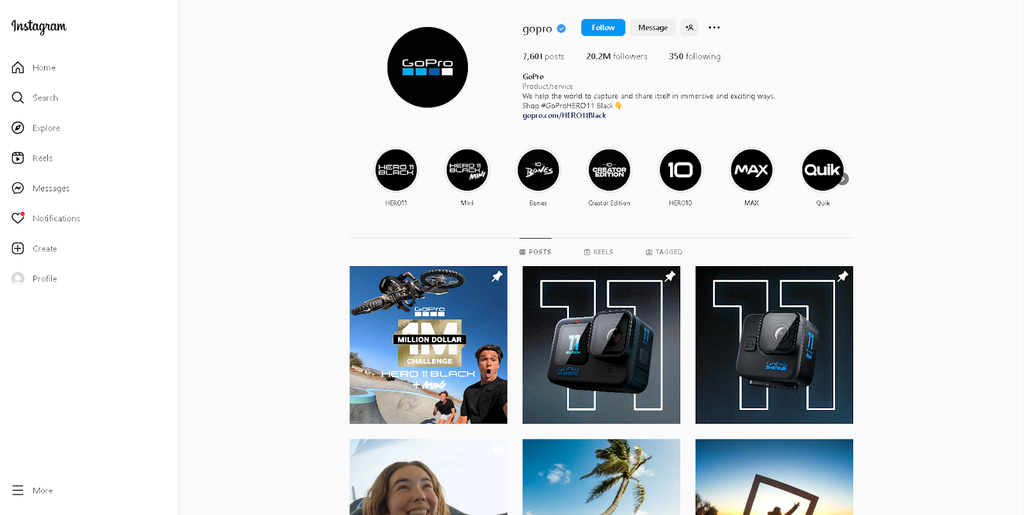
- Advertising: print, online, TV, radio
- Public relations and publicity campaigns
- Sponsorships and donations
- Trade shows and exhibitions
- Promotional materials: brochures, website design, logo design
- Website development and SEO
- Sales visits and trade shows
With continued global economic expansion comes more intense competition. No matter how great your goods or services are, you still need to market them to keep customers from switching to someone else. Since the investment requires a profit once the business is established, it is useless to estimate how much it will cost to launch a business without accounting for sales and marketing costs.
Depending on your business model, advertising costs may differ greatly. For instance, setting up roadside displays at a gas station is probably all that is required. A restaurant that is part of a shopping center, on the other hand, might require billboards, Google advertising, social media posts, and more.
Although marketing has a cost, it need not be viewed as a loss. You can generate revenue by getting a good return on your advertising investment by using the right strategy.
Payroll
Payroll costs for a new business are calculated based on a variety of factors. In general, you'll have to take salaries, withholdings, and benefits into consideration.
The price of state disability insurance, workers' compensation insurance, and unemployment insurance must also be taken into account.
You might also be required to pay Medicare and Social Security taxes in some circumstances. When starting your business, it's crucial to account for these taxes because they can quickly mount up.
Business Startup Costs for 5 Common Industries
1. Food
What does it cost to launch a company in the restaurant and food sector?
Starting a business in this sector typically costs $125,000.
Additionally, you can significantly lower your startup costs by purchasing a restaurant franchise, or you can get started right away by buying the clients of an existing agent.
On a tight budget, restaurant franchises have variable expenses between $25,000 and $50,000.
Starting a food truck, a growingly popular option, is an additional concept. How much capital is required to launch a profitable business? You could spend $30,001 to $200,000 on it.
Here’s an example for your inspiration:
Dang Foods is among the top Shopify shops in the food industry. This website pops thanks to the amazing imagery and colors, as well as the dynamics of mouse movement. Even though we haven't even gotten past the first screen, I'm extremely impressed.

This website stands out because of how interactive it is. The scrolling animations are flawless, and the original but simple navigation to view more flavors and other pages is just pure genius. Additionally, their copywriting is clever and enjoyable.
The custom imagery is perfect, which is exactly what you want for your Shopify store.
People visit your store because they are curious about your goods, your reputation, and the benefits you can offer them. Even if the value is limited to watching Netflix while savoring some delicious sliced coconut flakes.

This means that your product needs to be prominently displayed, which is what Dang Foods has done in this instance.
The homepage features all of the press mentions, significant product reviews, and feature articles (featured on BuzzFeed, Men's Health, etc.). Add it wherever you can because it's crucial for developing a connection with your clients and establishing a solid reputation.
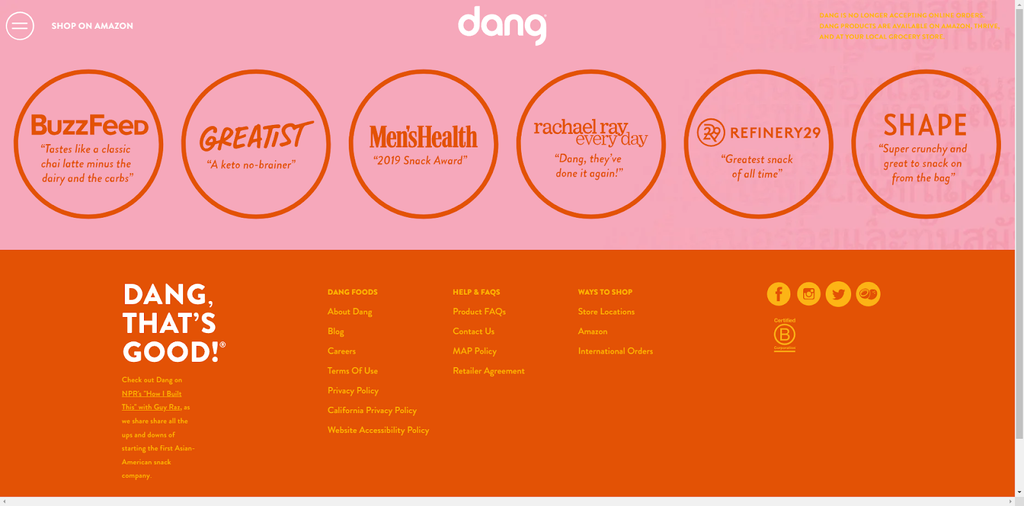
Read more: 14 Best Small Food Business Ideas Of 2023
2. Retail
Starting a retail business typically costs $32,000. 42% of small business owners do, however, invest about $5,000 to open.
No matter if you open a retail clothing store, a furniture store, or an arts and crafts shop, some start-up costs are largely constant. You will need a security deposit to rent a space, guarantee utilities, and pay the first month's rent.
The total start-up costs may exceed $3,000 as a result of everything. Don't forget to budget an additional $3,000 to $7,000 for the customization of the rented space, the purchase of store fixtures like shelves and bookcases, and other unforeseen costs.
Take a look at one of the best clothing stores example:
Fashion Nova is one of Google’s top searched and visited fashion brands. They are well known for giving people all over the world access to the hottest styles. Even well-known stars like Cardi B and Kylie Jenner choose the fashions they wear.
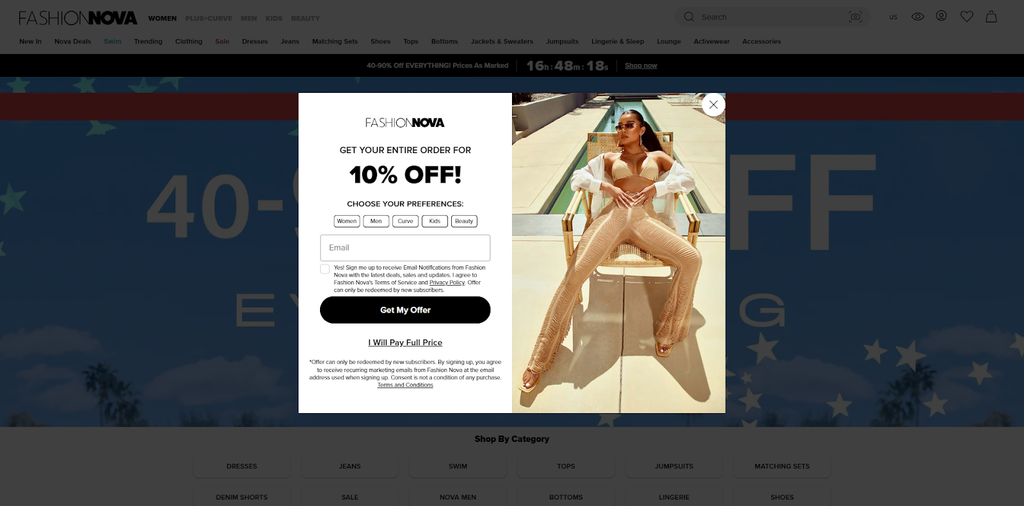
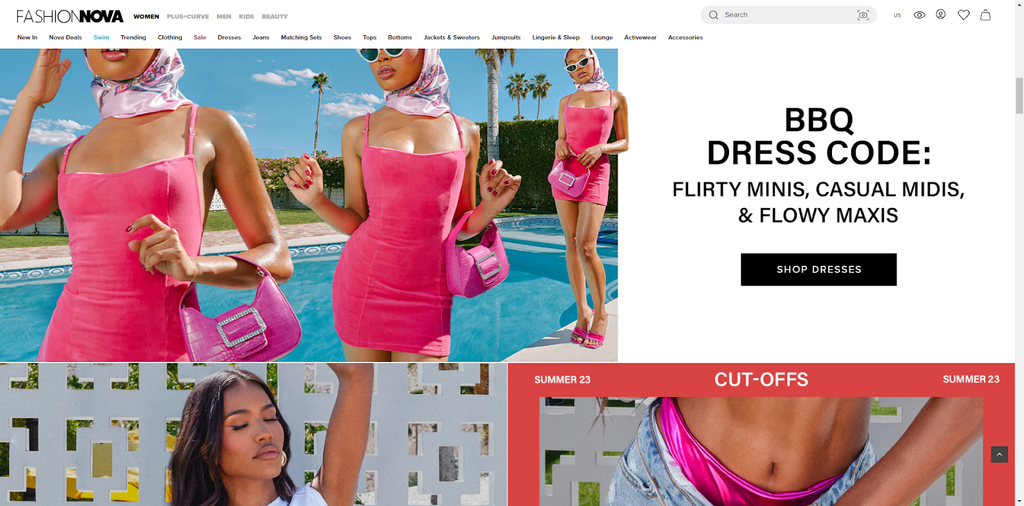
Their primary objective, also known as "Instagram Brand," was to attract customers through the Instagram profile. Through influencers, content marketing, and the Instagram feed, they interact with customers.
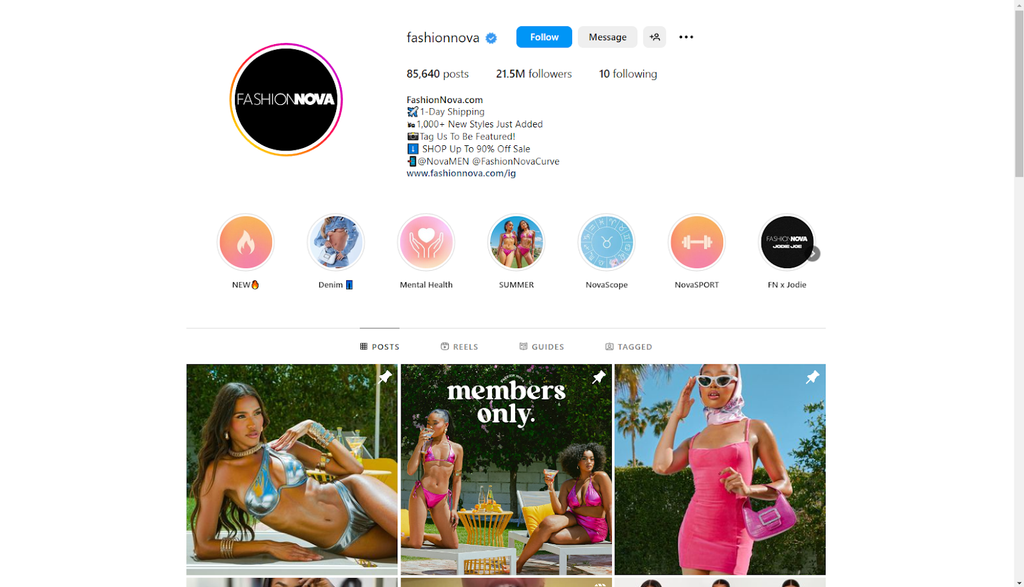
In order to boost website traffic and user engagement, Fashion Nova also holds contests. The contest winners have the chance to be highlighted on the website's home page and receive gifts..
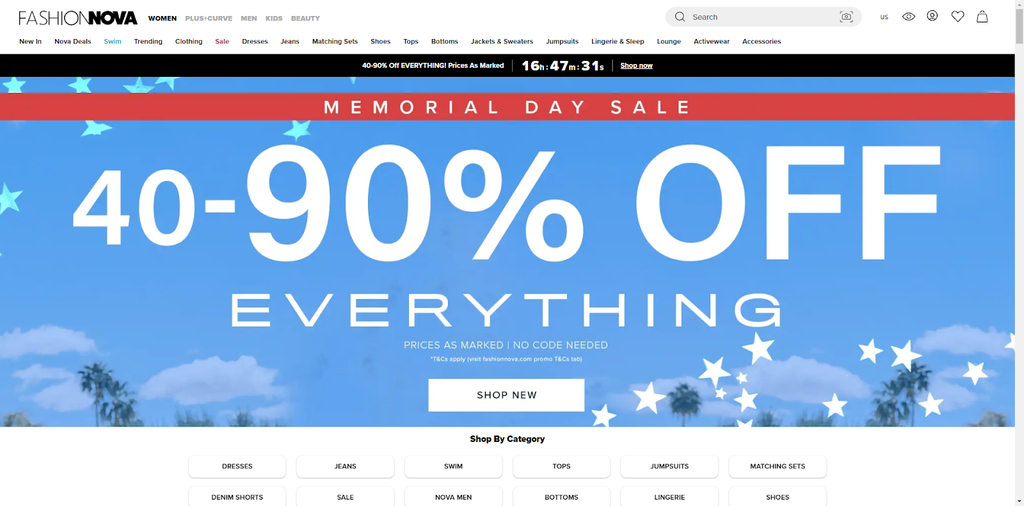
Read more: What Are The Best Type of Retailers for New Business?
3. Insurance
How much does it cost to launch a health insurance provider's business? Starting a business in this sector can cost between $5,000 and $50,000 and includes the following typical costs:
- You must complete general education and ethics courses, which can cost between $300 and $500 each. Many are accessible online, allowing you to advance at your own pace.
- You can take the licensing exam for each insurance category after earning the required credit hours for these courses.
- You'll spend a lot less money starting your business if you do it from home. You won't have to pay for things like rent, furniture, or additional utilities.
- By purchasing the clients of another agent, you can get started right away. The majority of your start-up costs are negotiated between agents and comprise these costs.
- The insurance industry uses management software to complete administrative tasks. To access the features of the software, budget $50–$300 per month.
4. Professional Services
How much does it cost to launch a business that offers a specialized service? Lawyers, veterinary professionals, accountants, architects, photographers, etc. are some examples of professional services.
Small business startup costs around $18,000.
You must pay around $1,000 for the necessary licenses in order to abide by state and local authority regulations.
- Licensing specialized software for your service niche ($3,000-$5,000).
- Hiring graphic designers to create professional brochures and a website ($5,000).
- Buying office furniture, computers, and related supplies for your service ($2,000-$4,000).
Olson Kundig is a design firm that appears to have perfected the blending of slick, contemporary design with undeveloped landscapes. The majority of the studio's projects highlight the expert use of organic materials like wood and stone, as well as open concept layouts and kinetic elements that honor the human scale and touch.

This aesthetic is mimicked in the firm's website design, which features broad, full-width images that take up the entire page and draw attention to the untouched beauty of the surroundings. The use of parallax effects and smooth, animated transitions gives this website a refined, refined touch. The outcome is a well-balanced aesthetic that is instructive and reminiscent of their architectural designs.

You can also check their Instagram out.

5. Transportation
Why not drive people to work, the airport, and other locations if you already have a van?
The vehicle could also be used to assist in moving or assist senior citizens.
Here is a breakdown of the costs associated with starting a business in the transportation industry, in addition to the licensing and insurance start-up costs already mentioned for other professions:
- If you own your van, you'll need to pay for ongoing repairs and maintenance. Set aside $300 to $500 a month for unforeseen repairs.
- You don't need to carry extra cash to buy gas if you use fuel gas cards. When your transport schedule is booked solid, budget at least $40 per day for one vehicle.
- Business cards and flyers are required ($200).
- As your company expands, you might choose to open an office. You'll pay rent, purchase furniture and office supplies, as well as other operating costs, as was already mentioned.
See Hertz as an example:
In J.D., Hertz barely defeated Enterprise to claim the top spot. Customers are clearly satisfied, as evidenced by J.D. Power's 2019 rankings; the company has won a number of awards in recent years for its customer service, demonstrating that it continues to perform well on all important metrics.
Hertz promotes repeat business by rewarding loyal customers with benefits like reward points and e-return options.
Program for rewarding loyalty: The Hertz Gold Plus Rewards Program gives frequent renters benefits like skip-the-counter pickup and e-return, accelerated exit gate times, and a wider range of vehicle options. Renters additionally accumulate points for future rentals or other benefits.
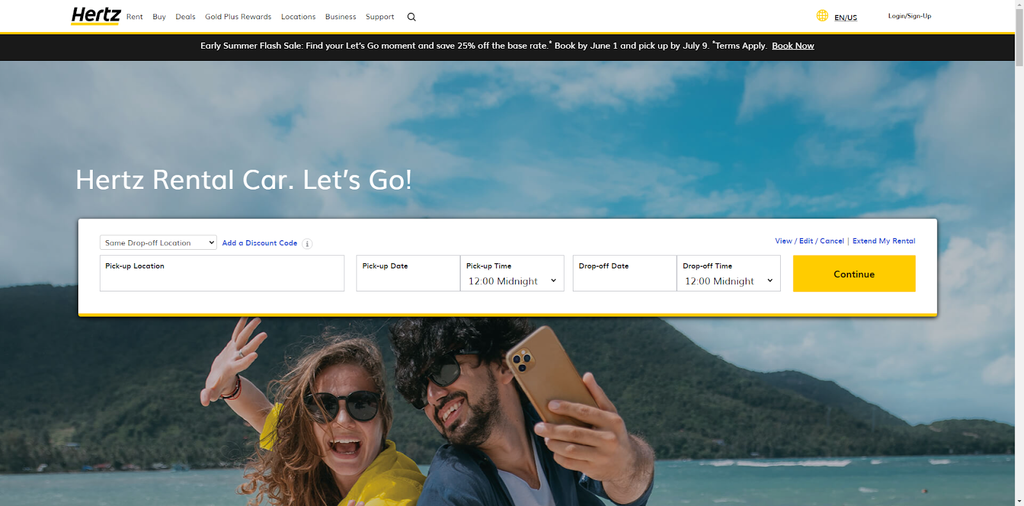
How Business Owners Get Money to Invest in a Small Business?
You can raise money in a variety of ways to start a business. Here are the four most popular choices.
1. Get a loan
One option is a startup loan. Because banks and lenders developed these options with your needs in mind, they are the best alternatives. A small business loan is an additional choice that is good but not ideal.
The best part is that cash deposits into bank accounts can take 2 to 10 days.
2. Borrow money from family and friends
Most family members and friends won't charge interest (although they could); they just want you to succeed. Include repayment terms, the amount of the loan, and any other relevant information in the loan agreement that you write. The problem is that if you don't repay the loan, your relationships could suffer.
3. Use money from a personal savings account
Making a withdrawal is acceptable if you can keep six to twelve months' worth of living expenses in your savings account. If not, you shouldn't.
4. Credit cards
Look around for the best credit card with lowest rate and best terms. Just keep in mind that fees, interest, and the monthly credit card balance can add up quickly.
Tips to Save on Startup Costs
Outsource Freelancers
Use freelancers to complete specific tasks to cut down on payroll and employer costs. An intern can help you save money as well.
Work Remotely
Until your company is financially able to handle those types of payments, it is preferable to operate a virtual office rather than rent office space and pay utilities.
Buy Wholesale
Buy in bulk the things you'll use repeatedly. Office supplies and materials for product manufacturing are a couple of examples. Ask your suppliers if they provide discounts for large orders by giving them a call.
Reuse
Invest in used, good-condition office supplies and furniture.
An Inspirational Story for Business Owners
Alpha Coffee

On September 11, 2010, Carl Churchill's lucrative bean business officially opened for business. The day served as a reminder of his past and the causes he fought for for this former US Army soldier.
After his deployment, Carl is now working alongside his wife, Lori, on their Salt Lake City company, Alpha Coffee. However, their charitable initiative, Coffee for Troops, which has already distributed 16,000 bags of coffee to military units overseas, makes sure that Carl's heart is always close to the front lines.
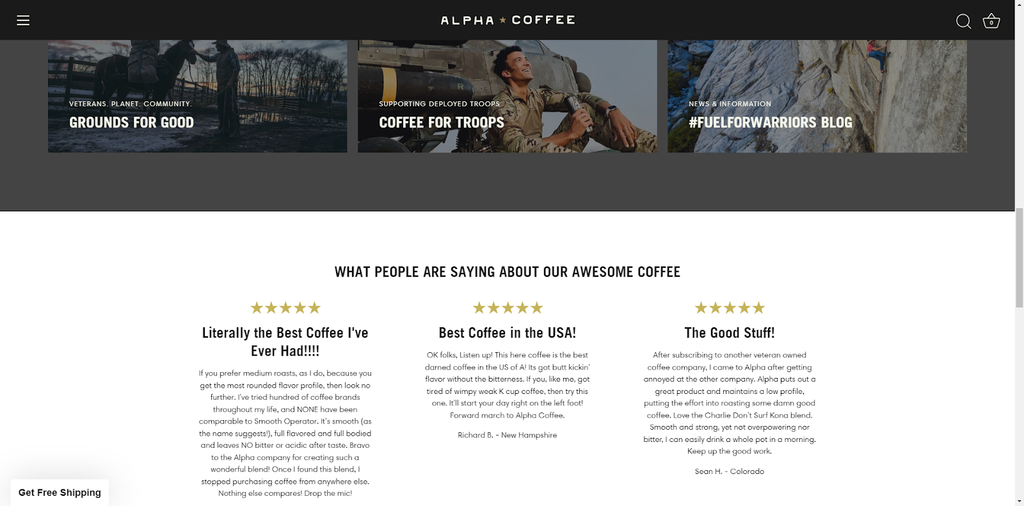
Beginning as a means of survival, Alpha Coffee. Carl's family survived on shrinking emergency savings after the 2008 recession hit and they had to sell their possessions to stay afloat. Then, they decided to alter their strategy and cash out their 401k before selling coffee beans.
The Churchills' online business gradually expanded from their basement into two successful physical storefronts. They have largely reclaimed their former way of life as well, and Carl and Lori work hard seven days a week to maintain it.
Here, Carl discusses the upside of losing almost everything and how serving in the military enabled him to put everything in perspective and start over.
Conclusion
Starting a successful business is a marathon, not a sprint. Therefore, it's imperative that you don't use your company's first year's profitability to gauge its success. Give yourself a launch window of 18 to 24 months for your company. Using the budget guidelines above, test, repeat, and reinvest your sales into your company during the first year.
No matter how you decide to launch your business, you must budget your costs and plan ahead. You can avoid future stress if you are aware of the startup costs for your business.
Small business loans can provide the financial boost you require to purchase machinery, hire personnel, or make renovations if you have decided to take the risky journey of running your own company.
A certain appetite for risk is necessary to be an entrepreneur. However, you can prevent a lot of the financial blunders that new business owners make if you have the right information and a clear understanding of your financial objectives. Additionally, managing all the other moving parts is much simpler with the right e-commerce platform.




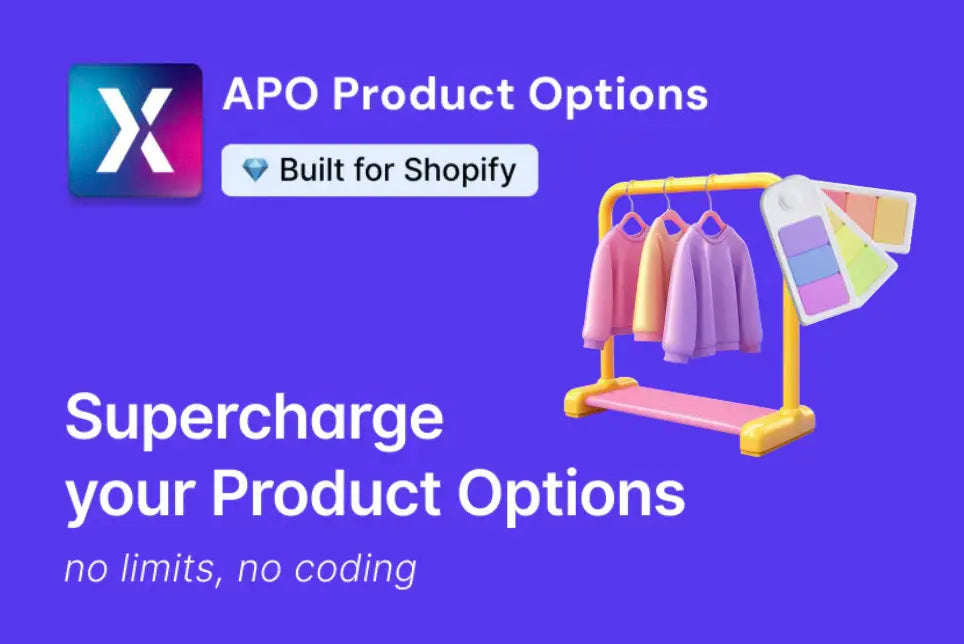


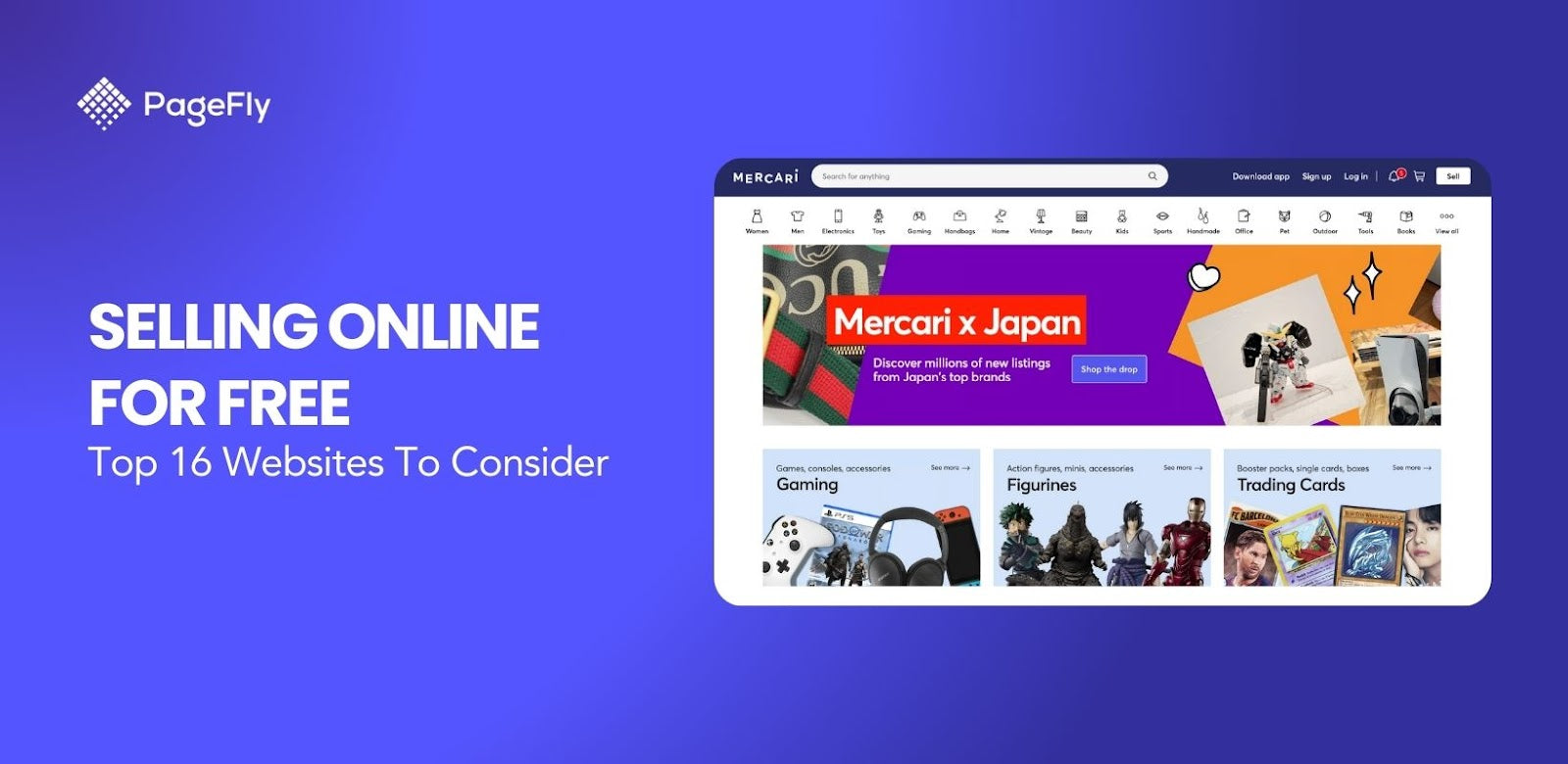
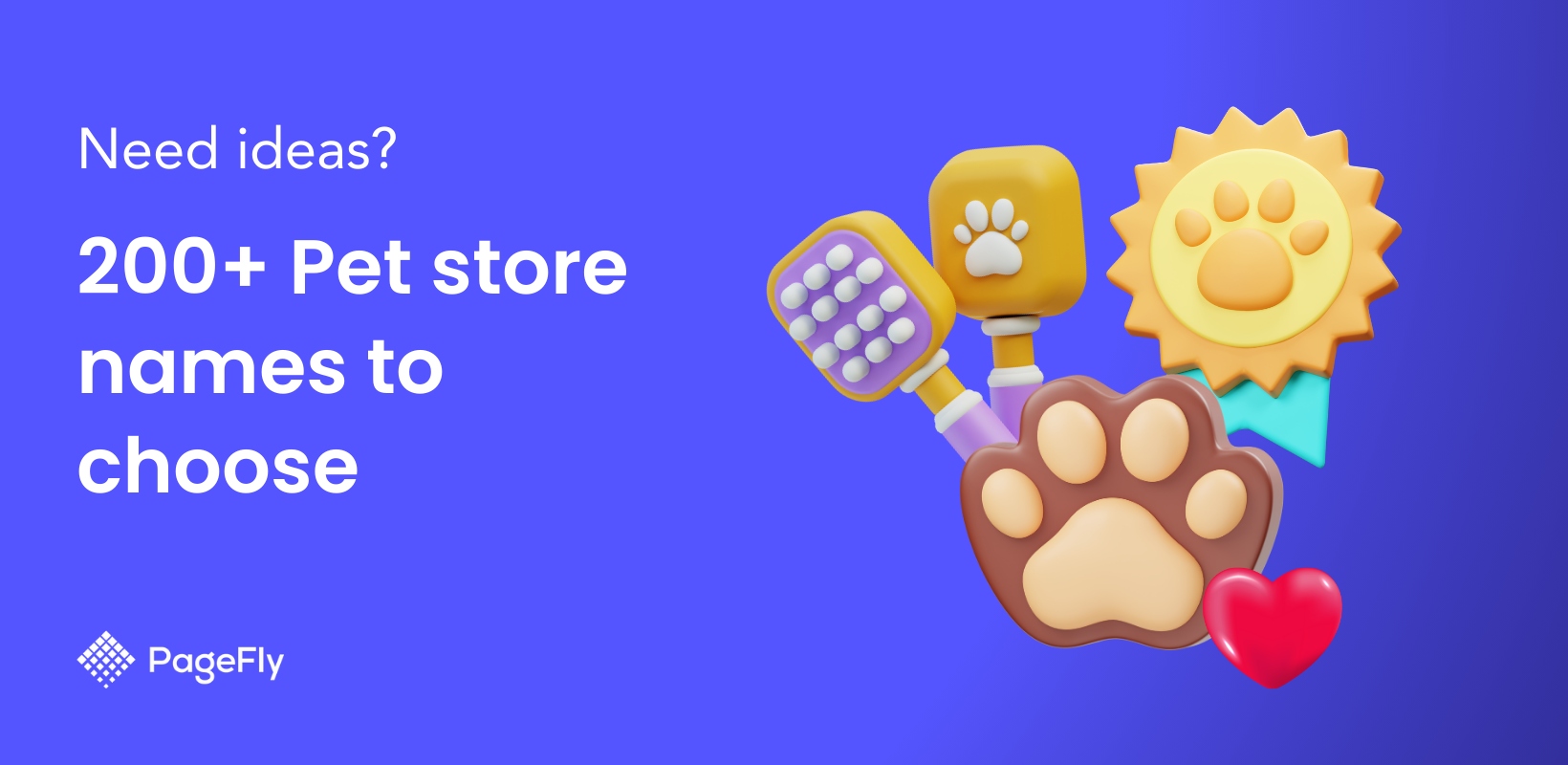
![14 Profitable Small Food Business Ideas for 2025 [Real Numbers]](http://pagefly.io/cdn/shop/articles/1_58b587d2-13db-4aa6-8c19-e40f5c88d3eb.jpg?v=1758255771&width=4460)
![Art Business Names: 350+ Ideas + Free Generator [2025 Updated]](http://pagefly.io/cdn/shop/articles/art_business_name_e94a54e9-d325-4ba3-94ab-7b4297952312.png?v=1760062968&width=1640)
